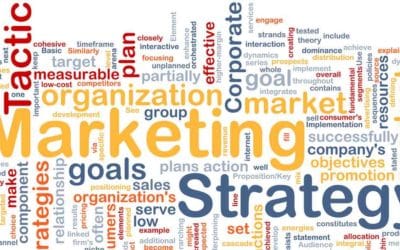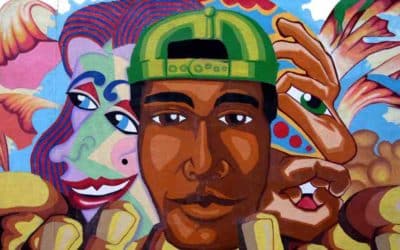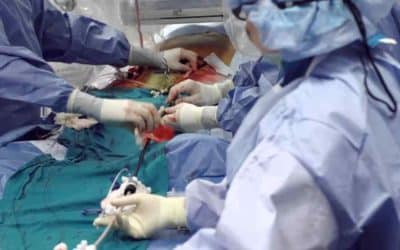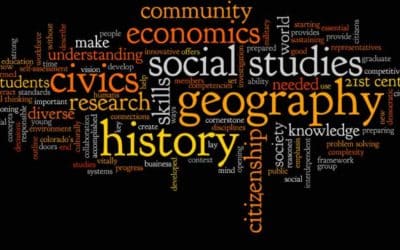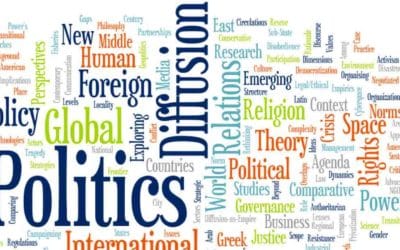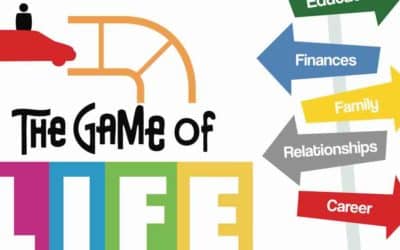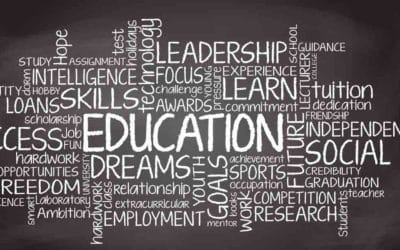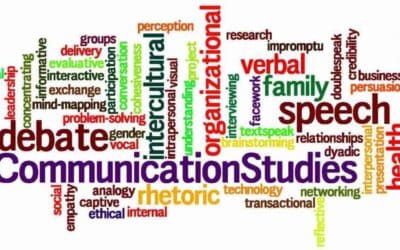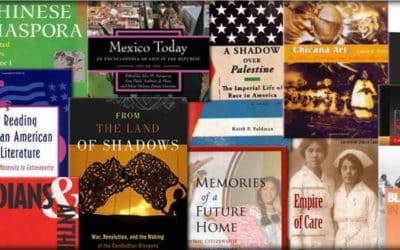History attracts individuals eager to learn about the past, analyze historical events, and uncover narratives that have shaped societies.
Explore Majors and Careers Below.
You’ll find information on over 50 categories of majors and a thousand majors in our databases, including information on fit, careers, and earnings.
Explore Your Interests
You can also use LifeLaunchr’s and our partners’ tools to explore your interests, aptitudes, and character strengths:
- The LifeLaunchr Interests Test
- The YouScience Aptitude and Interest Test (please get in touch with LifeLaunchr Support to get an invitation)
- The VIA character strengths test.
Business and Marketing
Business and Marketing offer opportunities for people who combine strategic thinking, problem-solving, creativity, and communication skills.
Visual and Performing Arts
Visual and Performing Arts offer a creative and expressive outlet for individuals passionate about visual arts, music, dance, and theater.
Computer and Information Sciences
Computer and Information Sciences are dynamic areas of study. This article explores educational and career opportunities within the field
Health Professions
Health professions encompass careers dedicated to caregiving. From doctors and nurses to therapists, health professionals improve well-being.
Construction Trades
Construction shapes our cities and infrastructure. The construction trades can be rewarding for people who enjoy working with their hands.
Public Administration and Social Service
Public administration and social service careers are ideal for students passionate about helping others and impacting their communities.
Law Enforcement and Protective Services
Law Enforcement and Protective Services maintains public safety and enforces laws: careers requiring communication and problem-solving skills.
Psychology
Psychology is the study of the human mind and behavior, encompassing subfields ranging from cognitive to clinical psychology.
Scientific Technicians
Scientific technicians support research projects and experiments in industries including healthcare and environmental science.
Social Sciences
The social sciences study human behavior, society, and relationships. They include anthropology, economics, geography, history, and psychology.
Physical Sciences
The physical sciences include all the disciplines concerned with the natural world: chemistry, physics, astronomy, geology, and more.
Theology and Religious Vocations
Theology and Religious Vocations focus on religious traditions, beliefs, and practices. They are ideal disciplines for students who wish to pursue careers in ministry or religious education.
Philosophy and Religious Studies
Philosophy and Religious Studies explore questions about life’s purpose, ethics, and morality and offer a diverse range of career options.
Media Studies and Multimedia
Media studies and multimedia encompasses creating, producing, distributing, and consuming media content, with many potential careers.
Recreation and Fitness Studies
The field of Recreation and Fitness Studies promotes healthy lifestyles. Graduates pursue careers in health clubs, schools, and more.
Multidisciplinary Studies
Multidisciplinary Studies combines disciplines, provides students with a diverse education, and develops critical thinking skills.
Transportation
Transportation involves a lot of fields –from driving trucks to planning the logistics of shipping and travel. If you think you might like working for a shipping company, or driving trucks on open roads seems appealing, this could be an interesting choice. This isn’t glamorous work, but it’s the kind of work that makes the entire economy work.
Precision Manufacturing
Precision manufacturing is the future of manufacturing. Whether it’s 3-D printing, nanotechnology, or customized manufacture, you’ll learn about the techniques and technologies that are involved in modern manufacturing. So if you think you’d enjoy building the factories of the future – to build smartphones, home technologies, and the Internet of things – this might be a great fit.
Mechanics and Repair Technicians
Mechanics and repair technicians fix and maintain your household appliances – washers, dryers, dishwashers – as well as cars and trucks. If you enjoy working with your hands and fixing things, this can be a great career path. Much of this machinery is operated with sophisticated computers and electronics, so it involves learning not only how to fix mechanical things, but also how to use technology and understand it.
Military Technologies and Applied Sciences
Military technologies and applied science focus on how to apply scientific advances and engineering to specifically military uses. Many of the things we now take for granted in consumer uses – like low-light photography or GPS – came from military applications. Since the military has such an appetite for technology that keeps soldiers safer, helps battlefield communications and intelligence, and delivers more lethal firepower, it can be a leading edge field that drives the development of technologies we all use.
Mathematics and Statistics
Mathematics and statistics aren’t just about numbers, calculations, and algebra. If you study mathematics and statistics, you can focus on game theory, or the statistics of political campaigns or baseball. This is a field with many practical applications – finance, politics, and sports, for example. It is also a field where you can study theoretical mathematics: math just for the joy of it. If you like symbolic reasoning, abstract thought, and models, this could be a good fit for you.
Biology and Biomedical Sciences
Biology and biomedical sciences involves the study of living things, and all the techniques and technologies that are driving modern medicine, like genetic engineering and gene-splicing. If you care about curing disease, and dream about coming up with the next great innovation that transforms human health, or if you’d love to understand how bodies work and how anatomy and physiology are related, this might be a good fit.
Library Science
Library Science (also called Library and Information Science) involves cataloging information and understanding how to categorize large amounts of information. In a world where there is a huge oversupply of information, understanding how to categorize and organize it is critical. This field is best if it is combined with another field of study, as librarians with subject matter expertise in another field are especially valuable. The employment prospects in this field can be limited, since it involves work in libraries, which are often underfunded and under-staffed.
Social Sciences and Humanities
The humanities teach students to reason critically and understand why people act the way we do. It explores our thinking from multiple viewpoints.
English Literature
English Literature is the study of the great canon of English writing. It can involve reading the classics – like Shakespeare or Thomas Hardy – but these days is more likely to involve reading, analyzing, and understanding the writing styles of modern writers. If you love writing and reading, if you think you might want a career as a writer, journalist, or in marketing, this could be a great fit.
Legal Professions and Studies
Legal professions seems self-explanatory, but it’s more complex than just studying law. Of course if you want to be a lawyer, this is the field to study. Being a lawyer involves going to college for pre-law, and then going to law school and passing state bar exams. But if your idea of studying law comes from watching TV shows, be aware that actual law practice can vary immensely, from corporate lawyers who spend most of their time poring over the minutae of contracts to public defenders who are underpaid, overworked and defend people who are too poor to afford legal help from criminal charges. This field could also involve being a paralegal, who does work supporting lawyers – like gathering documents and evidence and filing court papers.
Family and Consumer Sciences
Family and consumer sciences involves studying how families and consumers operate. Much of modern marketing uses carefully designed statistical models to figure out how people make buying decisions: who in the family makes these decisions, how, and when.
Foreign Languages and Linguistics
Foreign languages and linguistics bot relate to language, but are very different. If you love learning languages, and want to speak Mandarin or Hindi or Spanish, you could major in those fields. There are many careers this can lead to – from international business to espionage. Linguistics, on the other hand, is the study of languages themselves. Linguists study how grammar evolved, how people learn language, and how to teach people second languages.
Engineering
Engineering involves fields from electronics – about building phones, televisions, and stereo systems – to mechanical engineering – about building cars, planes and trains – to civil engineering – about building bridges, homes, and skyscrapers. If building things is something you’re passionate about, and you like the idea of learning the science behind creating things and applying that science, this could be a great fit.
Education
If you’d like to be a elementary or high school teacher, or work in a school or personal situation where you are teaching people, studying education will help you learn the techniques of teaching, sometimes called pedagogy. Education majors learn about how to teach different types of students, how to manage classrooms, and help students grow personally as well as academically. In most states, becoming a teacher involves having studied education and obtaining a credential.
Personal and Culinary Services
Personal and culinary services include careers from learning to work in a restaurant as a chef to hair styling and cosmetology. If you’d like to work in a business that is intensely customer service driven, and is about providing services to real people every day, this could be a great fit.
Communications Technicians
Communications technicians work on the devices you use to communicate. Building and maintaining radio towers that smartphones use to communicate, installing and maintaining the routers that the Internet runs on: these are done by communications technicians. If you’re a computer whiz, and love installing and maintaining this kind of software-driven equipment, you might enjoy this field.
Communications and Journalism
Communications and journalism are among the many areas of study that have been profoundly affected by the Internet and smartphones. A generation ago, this was a staid career that moved so much slower than it does now. So if you are passionate about the news or about the ways in which politicians and media personalities communicate; or want a career as a journalist or public relations person, you might enjoy studying communications and journalism.
Ethnic and Cultural Studies
Ethnic and cultural studies is a relatively new field that addresses the issues of bias, inequality, and discrimination both in terms of the individual and systemic issues they raise. If addressing racial inequality or gender bias is something you’re passionate about, you might enjoy this field, where you’ll study how they have evolved over time, and how often they are baked into our perceptions of the world.
Architecture and Related Services
Architecture involves designing buildings. It’s a field that combines visual design, functional design, and engineering in unusual ways. People build buildings to live in and work in, to use as hotels and monuments, so buildings all have both form and function. Architects find ways to create designs that are visually interesting, and also ways to create designs that work, structurally and in terms of the use that’s intended. So it takes an unusual mind to be a great architect – combining design aptitude with a precise mechanical bent and artistic skills.
Natural Resources and Conservation
If you’re a passionate environmentalist, and want to find ways to conserve the natural environment, you might enjoy the field of natural resources and conservation. This field involves the studying the effects of human activity on the environment, as well as the effect of climate change, and finding ways to address these changes. There are many careers that lead out of these majors – from being a park ranger to working at universities or environmental NGOs (non-governmental organizations).
Agricultural Sciences
People who study agricultural sciences study all the techniques – from genetic modification to aquaculture – that have helped the world’s food production keep pace with an ever increasing population, the effects of climate change, and people’s appetite for ever more complex diets. So if you like working both in a lab and outside, developing and improving techniques for crop production, and if both food and science are passions, you might enjoy studying agricultural sciences.
Agriculture
Agriculture is a modern, scientific enterprise these days. Farmers use satellites to plan planting schedules, use genetic engineering to improve yields and pest-resistance, and futures markets to ensure the right price for their products. But at it’s core, if you study agriculture, you should enjoy getting your hands in the dirt and growing food. Farmers work long hours sometimes, very early and very late, and are dependent on weather and climate for the success of their work. If you like working outside, using modern technology to grow food, and enjoy the idea of being a provider to others, this might be a great fit.


